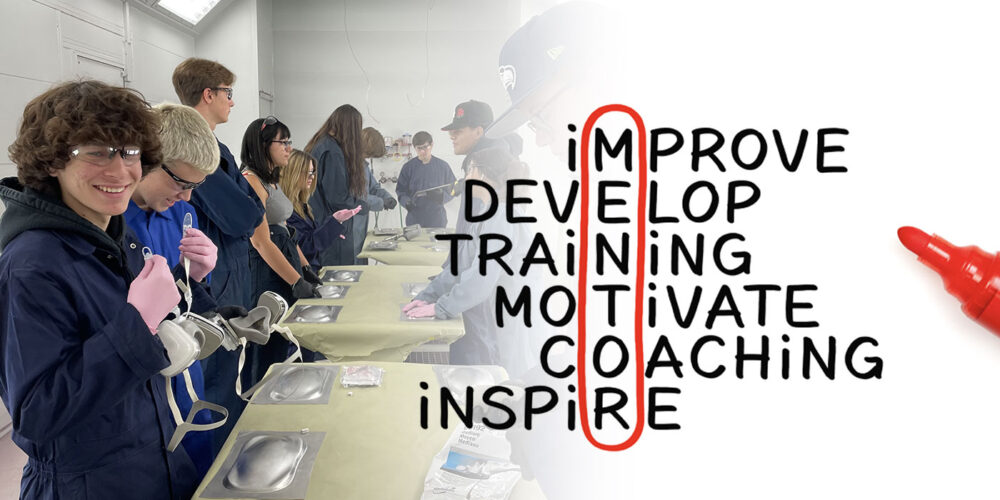Boomers will soon have left the workforce. There are not enough career-technical education schools, instructors or students to meet demand. Unemployment is a super low 3.4%, which means most unemployed people are not capable or interested in work. The worker shortage is a worldwide phenomenon.
Now, in 2023, the technician crisis grows. Approximately 74% of businesses need at least one technician and are willing to fill it with an entry-level tech prospect. The problem: What happens when the entry-level tech arrives?
The 80/20 Rule
The 80/20 rule is alive and well:
- 20% of product or service managers are investigating new ways to counter the technician shortage. Many are considering mentoring.
- Of those who say that they’re willing to attract and train youth in-house, 80% have no plan.
When pushed, 80% of managers confess they’re not competent in recruiting and — worse yet — poor at implementing effective training/mentoring protocols. Unprepared managers guiding untrained workers is our shared reality.
Approximately 80% of service managers confess to being unskilled in human resources (HR). They aren’t convinced that attracting, training or mentoring youth is part of their job or that they can even do it. The 80% are more comfortable with day-to-day production problems and not at solving the higher-level HR need.
One manager said, “I don’t know how to talk to young people, and they are always waving a mobile device … even in an interview.”
The remaining 20% of managers are viewing the shortage as an opportunity. The 80% of managers are not. To win, managers need to elbow their way into the 20% group who focus on HR.
As Peter Senge once said, “The only truly competitive advantage is to be able to learn faster than the competition.”
Looking for Mentoring
Young, entry-level or non-skilled applicants are pickier when considering a job. Instructors, counselors and parents are drilling into new job hunters, “Don’t take a job unless the business can prove they have on-the-job training (OJT) or continuing education,” and, “Ask if they provide mentoring!”
The reality is technical applicants in all industries have learned they can be selective. A young applicant’s employment expectations may contrast with an older manager. Handing them a broom and giving a “my way or the highway” lecture like you would have 20 to 30 years ago is no longer acceptable.
To become part of the successful 20% of managers, the remaining 80% must focus on HR and adapt to a new generation. Most won’t.
An Opportunity
Winning managers (the top 20%) see the worker shortage as an opportunity to expand their knowledge on new mentoring OJT and HR structures. The 20% accept that not every recruit works out and they’re persistent, trying again and again until expertise is gained — and that persistence provides a distinct advantage. The 80% who won’t solve their shortage probably won’t persist and finish this article. Will you? You get what you focus on, so focus on what you need.
OJT and mentoring are the possible solution — focus on that! The weak 80% manager will waste time and effort trying to find an “easy button” that will magically line A-techs up at your door. But there is no easy button. There is only being smarter, faster and more competent in human resources than the competition.
HR Competence
When prospective technicians or low-skill or no-skill prospects meet with you and/or your team, is the applicant impressed? Is he or she wowed?
Do you conduct an open, warm and professional interview of a possible mentor or mentee/apprentice? Are you prepared to show the applicant the opportunities that your industry and your business can offer?
Even among the 20% of effective managers, few create and present a one-page career plan. To win them, you must wow them!
Can You Provide Mentoring?
Mentoring is a management tool. It won’t solve all your problems, it doesn’t work all the time, and your team must be prepared before you have mentees. Mentoring is not easy — certainly at first. And certainly not the first, second or third time.
For the right managers in a willing and able business, mentoring can provide HR relief and be a powerful, competitive business strategy. Winning at mentoring means future techs can:
- Be more easily attracted
- Find a “home” and a career
- Learn specific technology you need faster
- Learn hands-on and by example
- Grow into higher-technology jobs and create higher profits over time.
Success is not based solely on “management.” If mentoring fails, it is not because of the mentor or mentee — it is because of management. Try, try again.
In the era of skilled worker shortages, leaders and managers must up-skill themselves so they can better handle the most valuable and complicated asset: people.














